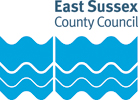Policy for the provision of specialist equipment in schools for pupils with SEND
Overview
We want to hear from school staff, parents and carers of children who go to school, and children and young people with special educational needs and disabilities (SEND). Anyone interested in the updated East Sussex County Council (ESCC) specialist equipment policy is also welcome to give feedback.
This policy has been updated because the cost of equipment continues to go up and more pupils now need it. The aim is to make it clearer and fairer when deciding how equipment is paid for. It also helps make sure pupils get the equipment they need as soon as possible.
The policy now covers all types of schools as well as local authority-maintained schools. This is because the number of academies has increased. It does not include independent schools.
Why your view matters
There was a big increase in costs in 2022. This happened because of several things, including Brexit, the effects of COVID-19, higher manufacturing costs, and inflation.
To help manage these rising costs and make sure pupils get the equipment they need, we have introduced funding limits (called financial thresholds) for buying specialist equipment in schools. These limits are different for primary, secondary, and special schools, as well as for schools with specialist facilities. They are based on current school funding levels.
Each year schools have to spend up to their set threshold before asking the Local Authority for extra help with funding equipment. We hope that making this clear will help schools plan better and rely less on outside funding.
The updated policy also includes new ways for schools to order equipment. These take into account VAT rules, which can help reduce the overall cost.
We would like your feedback on these changes. Do you think anything might make it harder for schools to use the policy? Do you have any questions about how it works? We will look at all feedback and make changes to the final version if needed.
To read the policy, please see the document embedded below, or scroll to the 'related section' to download it.
Taking part
The survey takes approximately 10 minutes to complete. You can use the ‘Save and come back later…’ button at the end of each page if you don’t want to complete the survey all in one go. A summary of the survey is given in the 'Take a look at the survey topics before you start:' section near the bottom of this page.
If you need support to take part or need the survey printed and posted to you, in large print or on coloured paper, or in another format please get in touch using the contact details provided.
Next steps
Following the closing date of this consultation and any subsequent revisions, the policy will be submitted to the Education Leadership Team for final approval.
Take a look at the survey topics before you start:
There are 3 pages in the main part of the survey, with 6 questions. If a question isn't relevant to you or you don’t want to answer, please skip it and move on to the next one.
The topics are:
- Understanding the Policy
- Main Changes
- Impact
Privacy information: This survey is anonymous and we don't ask you to provide any personal information. Please ensure that any comments you make don't include any names or personal details of you or anyone else. You can find our privacy notice about how the data will be stored and processed by East Sussex County Council on our website.
Areas
- All Areas
Audiences
- Anybody with an interest
- Carers
- Children
- Community groups or organisations
- Disabled People
- Parents, carers or guardians
- People who use our services
- Providers of services
- Public sector groups or organisations
- Residents of East Sussex
- Staff
- Voluntary groups or organisations
- Young people
Interests
- Children and young people
- Disability
- Learning disability or difficulty
- Schools and school admissions
- Social care services (children and young people)
- Support for parents, carers and young people
- Voluntary organisations


Share
Share on Twitter Share on Facebook